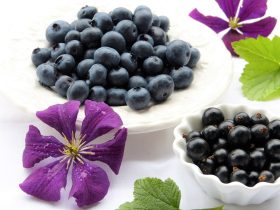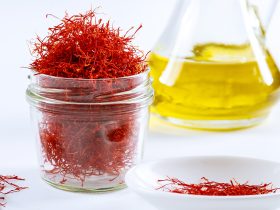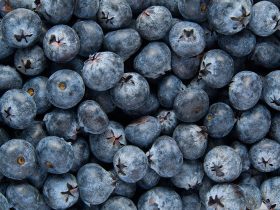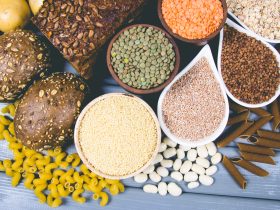In today’s fast-paced world, maintaining healthy heart is more critical than ever. As medical science evolves, we’re increasingly discovering the profound impact of diet on cardiovascular well-being.
From fiber-rich oats to the potent antioxidants found in pomegranates, the foods we consume can significantly influence our heart’s resilience. In this article, we delve into the best ways to nourish your heart, exploring evidence-backed dietary choices that promote longevity and vitality.
Join us as we embark on a journey through the aisles of the supermarket and the realms of nutritional science, discovering the simple yet powerful strategies to fortify our hearts against the ravages of modern life.
- Garlic
Garlic has been utilized for its medicinal properties for centuries, and research suggests that it may offer several benefits for heart health.
Studies on garlic supplements have indicated potential positive effects on blood pressure and cholesterol levels, making it a promising addition to heart-healthy regimens.
However, it’s essential to exercise caution when considering garlic supplements, as they may interact with certain medications and increase the risk of bleeding. Therefore, it’s advisable to consult with your doctor before incorporating garlic supplements into your routine, particularly if you’re taking other medications or have underlying health conditions.
Your healthcare provider can offer personalized advice and guidance based on your individual health profile.
- Pectin
Pectin is a type of soluble fiber found in fruits like apples and strawberries. This dietary fiber has been shown to help lower LDL cholesterol levels, contributing to heart health.
While pectin supplements are available, health experts generally recommend obtaining pectin from whole food sources like fruits.
Incorporating fruits rich in pectin into your diet can provide various health benefits beyond cholesterol management, including improved digestion and weight management. Additionally, consuming whole fruits ensures that you benefit from the array of vitamins, minerals, and antioxidants they contain, supporting overall health and well-being.
- Fiber
Fiber is a type of carbohydrate found in plant-based foods, and it comes in two main forms: soluble and insoluble. Oatmeal and bran cereals are excellent sources of soluble fiber, which dissolves in water to form a gel-like substance in the digestive tract.
This type of fiber has been shown to help lower LDL cholesterol levels, which can reduce the risk of heart disease.
In addition to oatmeal and bran cereals, other foods rich in soluble fiber include beans, lentils, fruits like apples and oranges, and vegetables like carrots and Brussels sprouts. Whole grains like barley also contain soluble fiber, making them a heart-healthy choice.
While fiber supplements like psyllium are available, getting fiber from natural food sources is generally recommended.
These foods provide not only fiber but also essential vitamins, minerals, and antioxidants that contribute to overall health. Aim to incorporate a variety of fiber-rich foods into your diet to support heart health and promote overall well-being.
- Omega-3 Fatty Acids
Omega-3 fatty acids are essential nutrients known for their cardiovascular benefits. They play a crucial role in maintaining heart health by promoting clear arteries, regulating blood pressure, and lowering triglyceride levels, which are fats in the blood associated with an increased risk of heart disease.
One of the best dietary sources of omega-3 fatty acids is fatty fish, such as salmon or mackerel. Consuming these fish at least twice a week can provide a significant amount of omega-3s and contribute to heart health.
In cases where dietary intake may be insufficient or when individuals require higher levels of omega-3s, supplementation with fish oil pills can be an option. Fish oil supplements are concentrated sources of omega-3 fatty acids and can be an effective way to boost intake.
- Sterols and Stanols
Sterols and stanols are natural plant compounds found in certain fruits, vegetables, nuts, and seeds. These nutrients have been shown to block the absorption of cholesterol in the body, thereby helping to lower LDL “bad” cholesterol levels and reduce the risk of heart disease.
Foods that are rich in sterols and stanols include almonds, peanuts, olive oil, and Brussels sprouts. Incorporating these items into your diet can contribute to better heart health.
Additionally, some foods are fortified with added sterols and stanols to enhance their cholesterol-lowering properties. Examples include margarine, orange juice, and yogurt. Consuming these fortified foods regularly may further support cholesterol management.
While supplements containing sterols and stanols are available, it’s essential to consult with your doctor before taking them, especially if you’re already taking cholesterol-lowering medication or have underlying health conditions.
Your doctor can provide personalized recommendations based on your individual health needs.
- Lycopene
Lycopene is a natural chemical compound found in tomatoes, whether they are consumed fresh or cooked in a sauce. Research indicates that lycopene may reduce the risk of heart disease, although the exact mechanisms of its action are not fully understood.
While lycopene supplements are available, experts generally recommend obtaining lycopene from dietary sources such as tomatoes and tomato-based products.
Consuming tomatoes and tomato products provides not only lycopene but also other beneficial nutrients and compounds present in whole foods, which may have synergistic effects on heart health.
It’s important to prioritize a balanced diet rich in fruits and vegetables to ensure adequate intake of lycopene and other essential nutrients for optimal health.
- Folate
Incorporating folate-rich foods into your diet can contribute to a reduced risk of heart disease and heart attack, offering a natural approach to heart health.
Dark leafy greens like spinach are excellent sources of folate, providing a nutritious addition to salads, soups, and smoothies. Lentils, lima beans, and asparagus are also rich in folate, offering versatile options for incorporating this essential nutrient into your meals.
While folate supplements are available, experts generally advocate for obtaining nutrients through whole foods whenever possible.
Consuming a diet abundant in folate-rich foods aligns with recommendations from health authorities like the American Heart Association, emphasizing the importance of a balanced and varied diet for promoting cardiovascular wellness.
By embracing a diet rich in folate-containing foods, individuals can support their heart health while enjoying a diverse and flavorful array of nutritious options.
- Vitamin D
Vitamin D is a crucial nutrient that plays a multifaceted role in maintaining overall health, including cardiovascular health. One of its key functions is aiding in the absorption of calcium, which is essential for bone health.
However, emerging research suggests that vitamin D may also have important implications for heart health.
While there are relatively few natural food sources of vitamin D, incorporating them into your diet can contribute to your overall vitamin D intake. Fatty fish like salmon and tuna are excellent sources of this vitamin.
Additionally, some foods are fortified with vitamin D, meaning that the nutrient is added during processing. Fortified milk and orange juice are examples of such products commonly available in the market.
Despite the importance of vitamin D, many people may not get enough of it through diet alone, especially those who have limited sun exposure, as sunlight triggers the natural production of vitamin D in the skin.
As a result, researchers have been investigating whether vitamin D supplementation could help fill this gap and support heart health.
- Pomegranate
Pomegranate is renowned for its potent antioxidant properties, which can play a role in maintaining clear arteries and supporting heart health. While some individuals enjoy its tart flavor by consuming the fruit directly, others may opt for pomegranate supplements.
However, before incorporating pomegranate supplements into your routine, it’s crucial to consult with your doctor.
This precaution is necessary because certain medications may interact unfavorably with pomegranate pills, potentially affecting their effectiveness or causing adverse effects.
- Green Tea
Green tea has gained attention for its potential benefits in reducing the risk of heart disease and stroke. Studies suggest that the presence of catechins, a type of antioxidant, in green tea may contribute to lowering cholesterol levels.
Regular consumption of green tea has been associated with favorable effects on cardiovascular health, potentially due to its antioxidant properties.
While some individuals may prefer drinking green tea as a beverage, others may opt for green tea extract capsules as an alternative.
- Soy
Incorporating soy-based foods into your diet can be beneficial for heart health. Soy, a plant in the pea family, offers various options such as edamame, soy milk, and tofu.
These soy-based foods can serve as healthy alternatives to meat products high in saturated fat, contributing to better heart health when included in your meals.
Soy foods are rich in nutrients like protein, fiber, vitamins, and minerals, making them a nutritious addition to a balanced diet. Additionally, soy contains compounds called isoflavones, which have been associated with potential heart health benefits, including lowering cholesterol levels and reducing the risk of heart disease.
Including soy-based foods in your diet offers versatility and can help you meet your nutritional needs while promoting heart health.
However, it’s essential to choose minimally processed soy products and incorporate them as part of a well-rounded diet that includes a variety of whole foods.
















Find Us on Socials